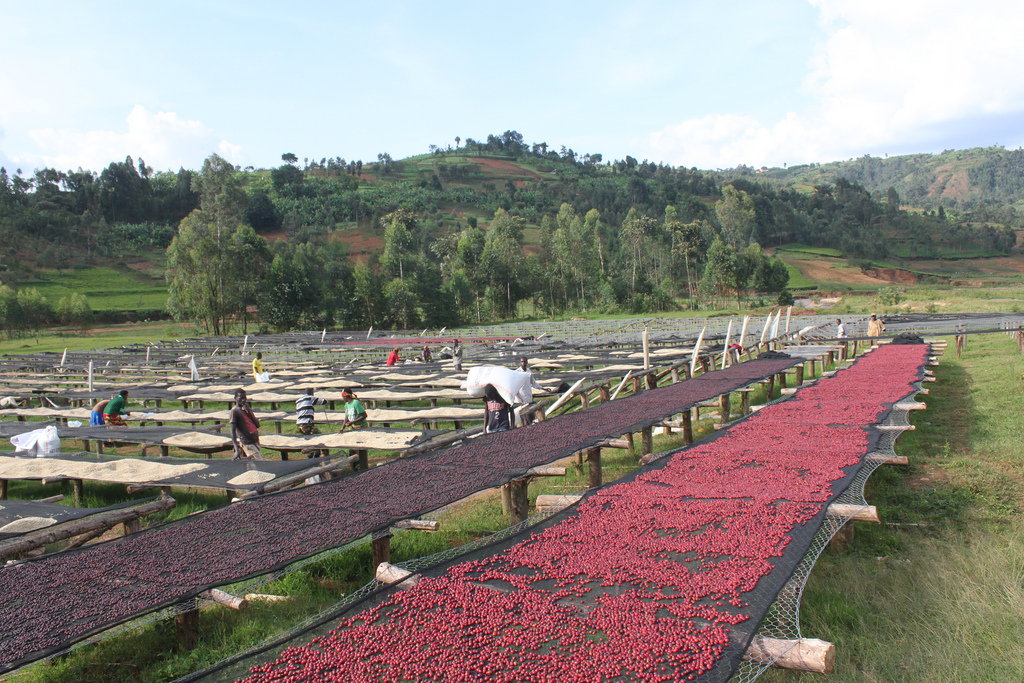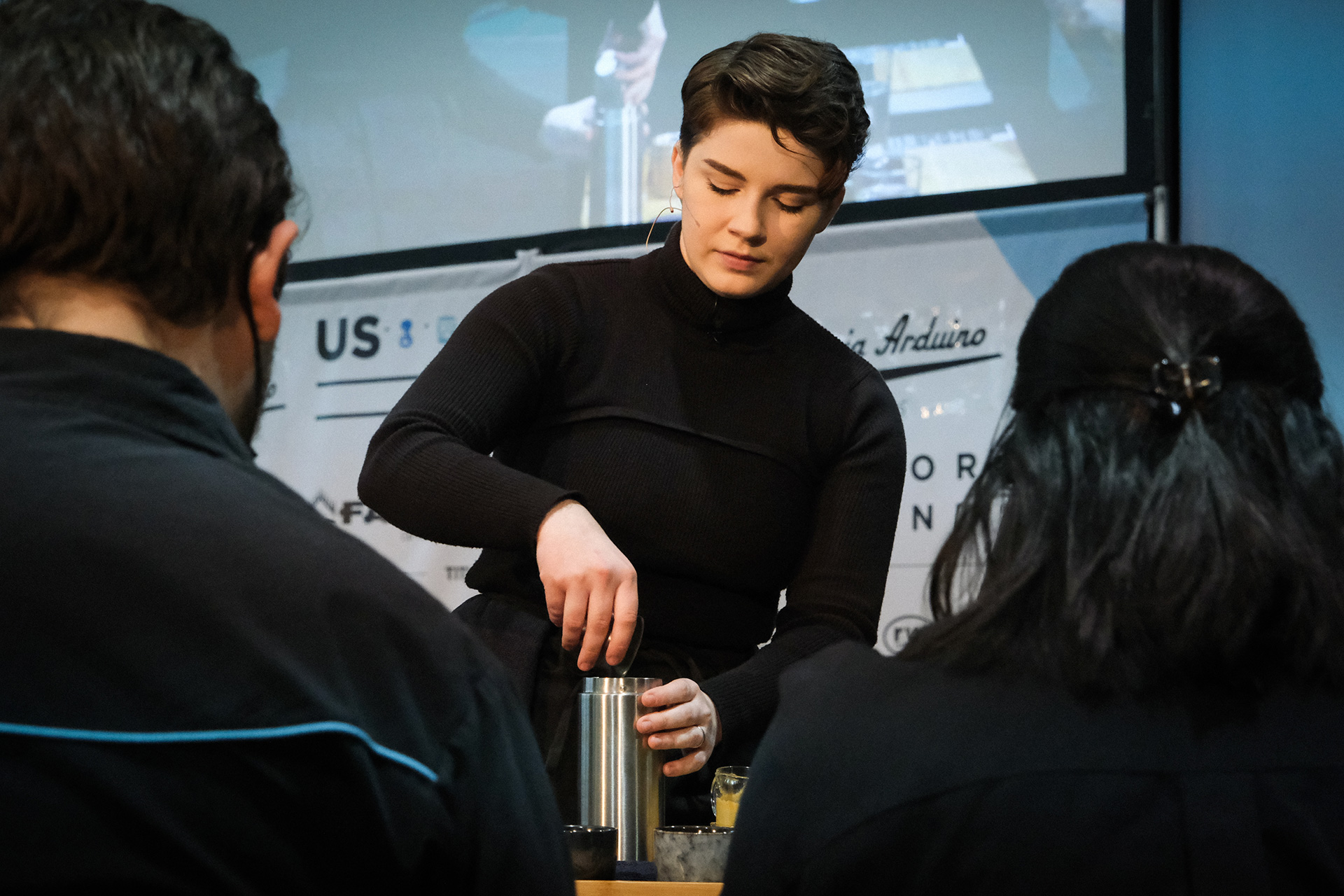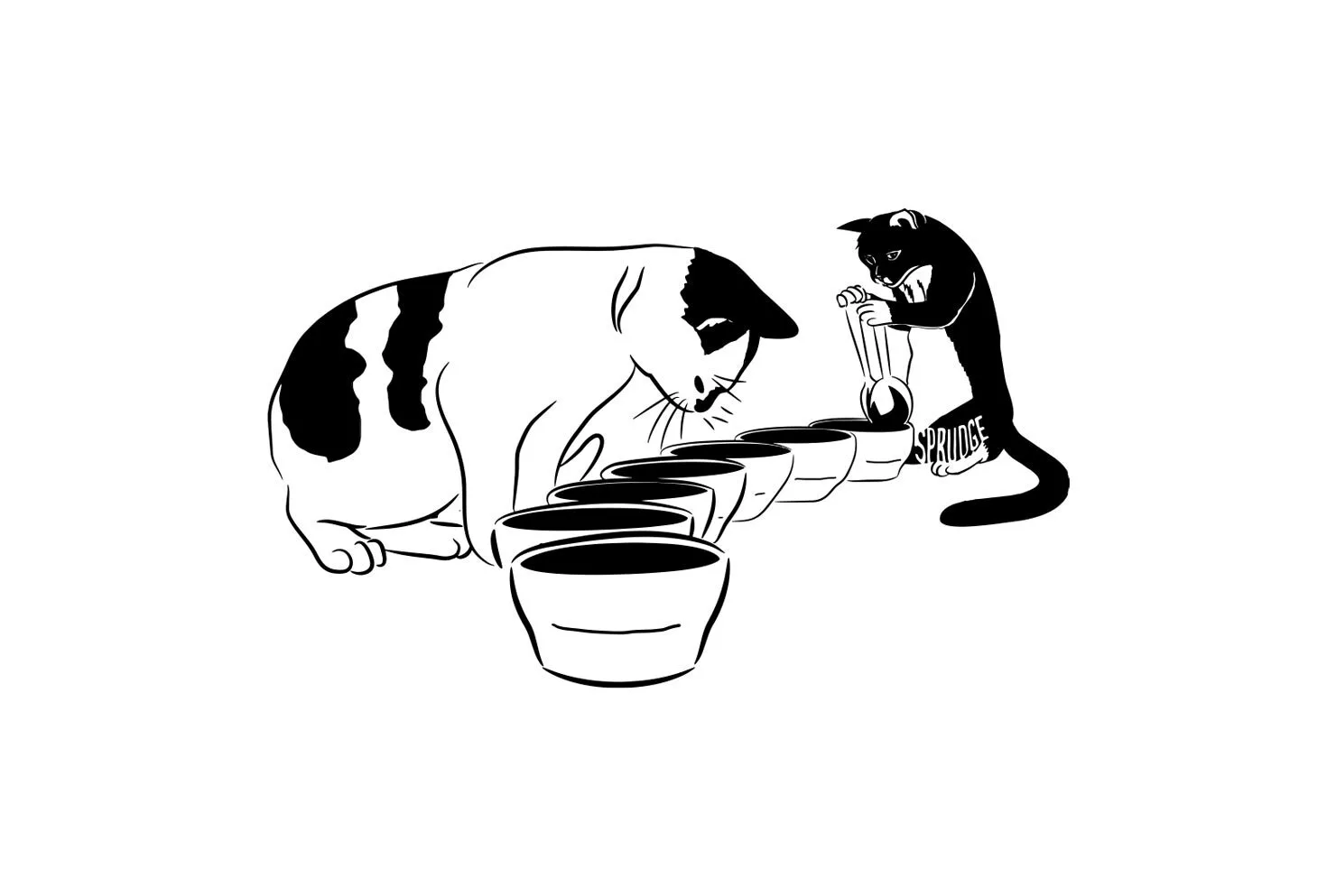Coffee terms can be a bit confusing. Isn’t all coffee natural? Isn’t all coffee processed somehow in order to get it from the farm to a state where we can drink it? What we mean when we say natural process coffee is that the path the coffee fruit takes from the treelet to the cup involves less complex intervention at the farm level than other methods, like washed or honey process coffees. In the natural process, the whole coffee fruit is left intact to dry after being harvested, which ultimately affects a coffee’s flavor. In some regions, natural process is known as “dry process.”
In the natural process, coffee fruit (often called “cherry”) is harvested from its home on a shrub or small tree. Then natural process coffees are set out straight away to dry in the sun skin-on, meaning the beans receive flavor from the fruit pulp and sugars as part of their development. Ideally, coffee will be harvested at a fully ripe red state to ensure consistency, something that’s especially important in this process. This path—harvest, then dried in the sun with the skin-on—is markedly different from what’s popularly known as the “washed” process, where a coffee is run through depulping machines and washing channels to have the fruit removed and the beans inside cleaned of any fruit and sticky mucilage.
In the natural process coffee may be dried on raised beds or tables, or laid out on drying patios. It may take two weeks or longer to achieve the desired result of the fruit being completely dried around the bean and ready for hulling. During this time, some fermentation will inevitably occur, affecting the flavor of the coffee in a range of ways from pleasingly fruity to downright funky. Some practices that can attenuate fermentation help avoid undesirable characteristics in the coffee, like regular rotation of the coffee as it is drying. After the coffee is fully dried, the dried fruit around the bean is then removed with machinery.
Is coffee processed in other ways… unnatural?
No. Natural processing has simply been around for a long time, from when coffee was first grown—in extremely arid regions—and this was the most logical way to get the fruit off of the beans. It requires human intervention at multiple stages, same as a “washed” coffee, but it is perhaps fair to say that natural processed coffees is the oldest way of processing coffee, making use of age-old practices involving time, gravity, and the sun’s drying rays, as opposed to more modern elements like depulping machines and a regular supply of running water.
Is natural process coffee more common in some coffee-producing countries than others? If so, why is that?
Many of the driest parts of the world and regions without easy access to lots of water (or machinery) still use the natural process, as well as farmers who enjoy the method and tradition. The natural process is still very common in origins like Ethiopia, Yemen, Brazil, and Costa Rica (the latter of which also popularized the related Honey Process).
Is it more environmentally sound to use the natural process? If so, why isn’t everybody using it?
Natural processing has a much lower equipment cost and uses far less water and energy than washed coffee processing. However, it is very difficult to do well because of the challenges posed by fermentation and mold, inconsistency, the potential for defects to be included, and even the amount or type of surface area needed to dry the coffee appropriately.
What does natural process coffee taste like?
Natural process coffees can be described as earthy and intense in flavor, often with notes of deep fruit and complex sweetness. Who doesn’t remember their first cup of Ethiopian Ididio Misty Valley with its almost outlandish blueberry overtones, amirite? It’s important to note that not everyone agrees on what natural process coffees taste like: in any group of coffee fans, you will find considerable debate over whether certain flavor notes in a natural coffee appeal in a fruity way, or offend in an over-ferment way. This is particularly true in “third wave” or specialty coffee circles, where opinions and claims of expertise run hot, not unlike a drying patio in direct sunlight.
Does everybody like natural process coffee?
The flavors resulting from natural processing remain contentious. To many drinkers, the wild, fruity notes many coffees take on as a result of natural processing can taste too intense, funky, and ferment-y. Recent decades have seen significant backlash against natural processed coffees, with some elite roasters claiming they would never touch the stuff. Nowadays, though, many if not most specialty roasters offer natural process coffees at least every now and then. When done well, natural processing can result in intriguing, flavorful coffees that even curmudgeons can enjoy. And for new devotees to coffee’s expansive palette of flavors, natural coffees offer a broad range of experiences to hook the open-minded and curious.
Liz Clayton is the associate editor at Sprudge Media Network. Read more Liz Clayton on Sprudge.


























